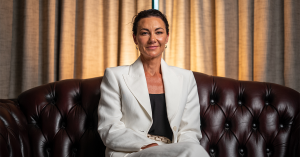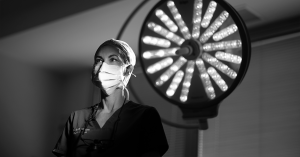Melbourne Female Plastic Surgeon is Hopeful of Muscle Separation Repair being Reinstated in the MBS for Mothers
DR SOPHIE RICKETTS, LEADING FEMALE PLASTIC SURGEON IN VICTORIA, REACHES OUT TO WOMEN AWAITING THE MBS REINSTATEMENT ANNOUNCEMENT FOR MUSCLE SEPARATION REPAIR.
- It is a known fact that many Australian mothers experience physical consequences post-partum, including abdominal muscle separation, also known as diastasis recti or rectus diastasis.
- In 2016, muscle separation repair was removed as an item number (30177) from the Medicare Benefits Schedule (MBS).
- The surgery was removed due to concerns expressed that it was being misused for cosmetic purposes rather than medically necessary reasons.
- Australian mothers have struggled to afford or pay off surgical support for muscle separation post-pregnancy.
- Until late-2021, the MBS has approved the request to reinstate muscle separation repair as an item number.
Source: Dr Sophie Ricketts
Almost two-thirds of women will experience abdominal muscle separation after giving birth. This may be due to a number of factors, including the baby's size and the mother's genetics. Common symptoms of abdominal muscle separation may include lower back pain, pelvic pain, and urinary incontinence.
“Lower back pain is really common when the muscles are separated because there is no core support for the back”, says Dr Ricketts.
To alleviate these symptoms and fully recover from the condition post-partum, surgery is more often than not deemed medically necessary. The surgery involves repairing the abdominal muscles that have been damaged during childbirth.
In 2016, Australian women were disappointed to discover that surgery to repair abdominal muscle separation, also known as diastasis recti, was removed from the Medicare Benefits Schedule (MBS) as an item number (30177). The surgery was removed from the rebate schedule primarily due to a misconception; the external skin repair that is also performed during this surgery expressed concern that patients were using the item number to their advantage for cosmetic purposes.
However, with this surgery now being removed from the MBS, meant the mothers requiring this surgery were confronted with out-of-pocket fees and expenses.
Australian mothers and surgeons banded together over the following years to demand this change be reviewed.
Campaigns had started, conversations were open, and petitions were put up calling for the Federal Minister of Health of the Australian Government Greg Hunt to reconsider this change and have abdominal muscle separation reinstated in the Medicare Benefits Schedule.
In May 2020, the first application put through to the Medicare Services Advisory Committee for this request was unfortunately rejected. Campaigns, mothers, surgeons and petitions, however, did not stop. A second application was put through in February 2021, which was later approved in October.
To date, the committee awaits a say from the Department of Health and budget decision makers' approval for Medicare coverage. The expected time for the next Federal Budget is unlikely to happen anytime before mid-2022. In other words, surgeons predict the item number will become available again in late-2022 to early-2023; no specific timeframes have been indicated.
What does this mean for mothers out there or women requiring abdominal separation repair surgery? It means that they can finally breathe a breath of fresh air; a sigh of relief, knowing that the surgery will be reinstated and covered by Medicare. Of course, now without having to worry about expensive fees or confronting bills, these mothers can now focus on recovering and taking care of their new baby.
While there is a temporary wait for this information to become available, there are some things you can do to start preparing for the surgery whilst awaiting its availability.
In the short term, you can see your GP to discuss non-surgical treatment options to manage any symptoms. The types of treatments offered may include physiotherapy, exercise, lower back braces, or short-term pain medication for symptomatic management.
Next, you may seek a professional surgeon's advice. Leading female plastic surgeon in Melbourne, Dr Sophie Ricketts, takes a special interest in post-pregnancy surgeries and abdominal muscle repair surgeries. She has personally seen countless women with diastasis recti and has successfully repaired the muscle separation in each case, with no major issues to follow.
Sophie has over 10 years of experience in plastic and reconstructive surgeries and is available for in-person and telehealth consultations.
As more information becomes available over the coming months, Dr Sophie Ricketts will update her website and social media with this important Medicare benefits schedule update.
Until this release, if you are a mother experiencing symptoms or have been advised by a GP to see a plastic surgeon for medical advice, book a consultation with specialist plastic surgeon, Dr Ricketts, to start discussing your options.
Isabella Gray
Surf Pacific
+61 7 5571 1161
isabella.gray@surfpacific.com.au
Legal Disclaimer:
EIN Presswire provides this news content "as is" without warranty of any kind. We do not accept any responsibility or liability for the accuracy, content, images, videos, licenses, completeness, legality, or reliability of the information contained in this article. If you have any complaints or copyright issues related to this article, kindly contact the author above.


